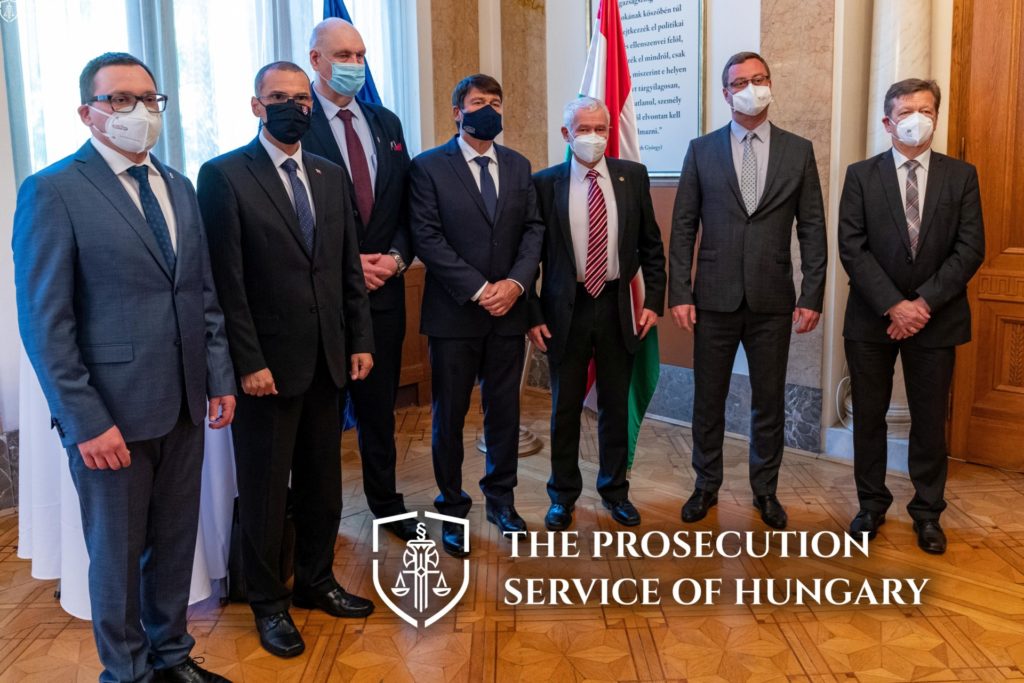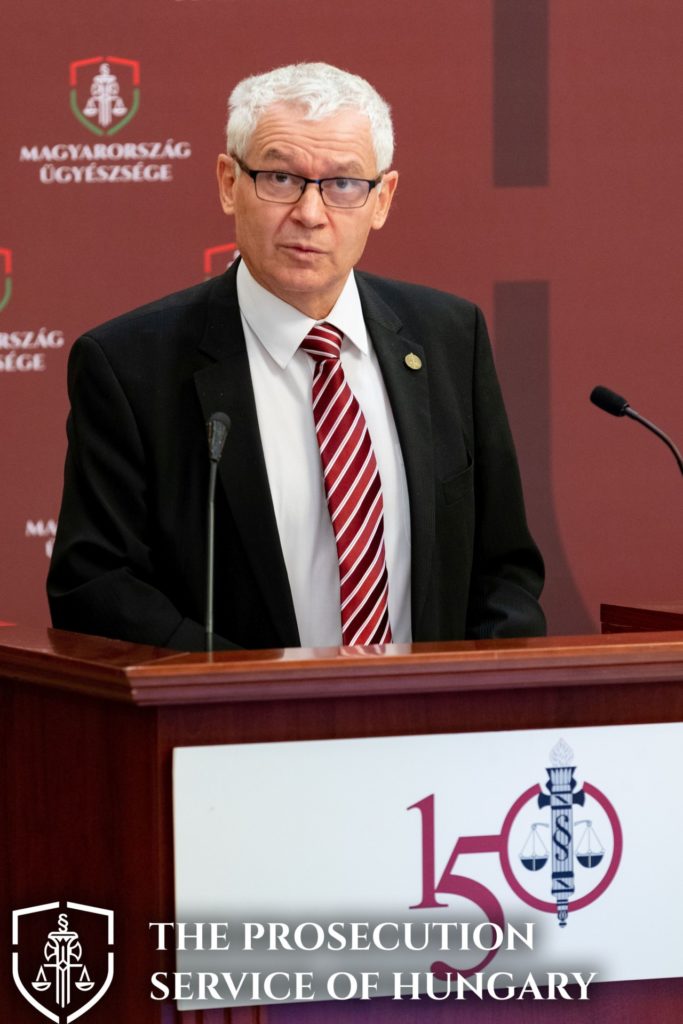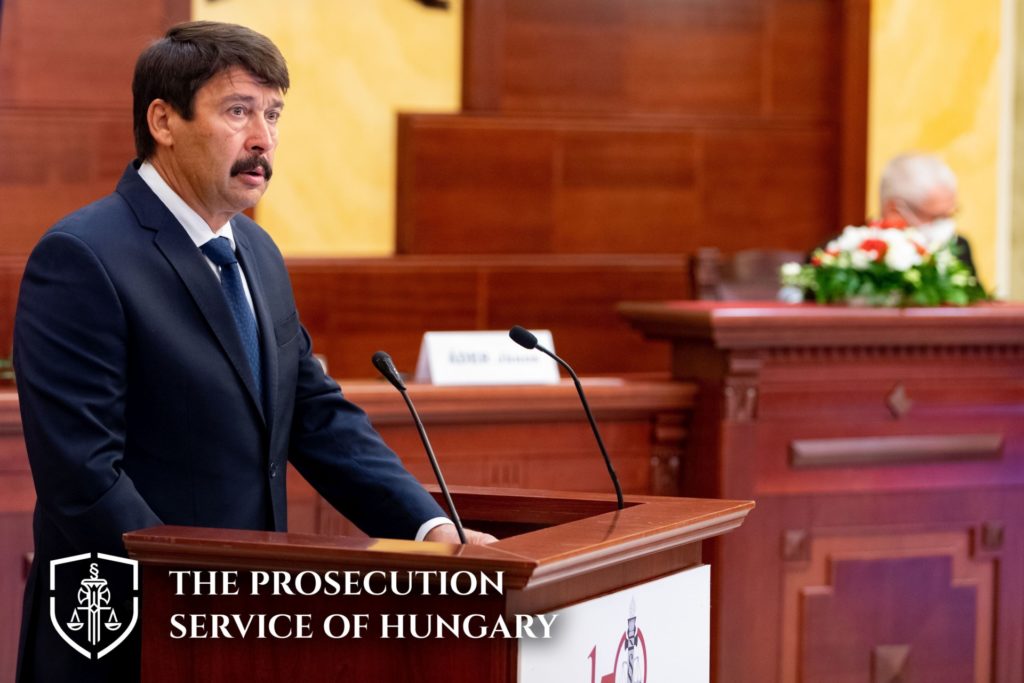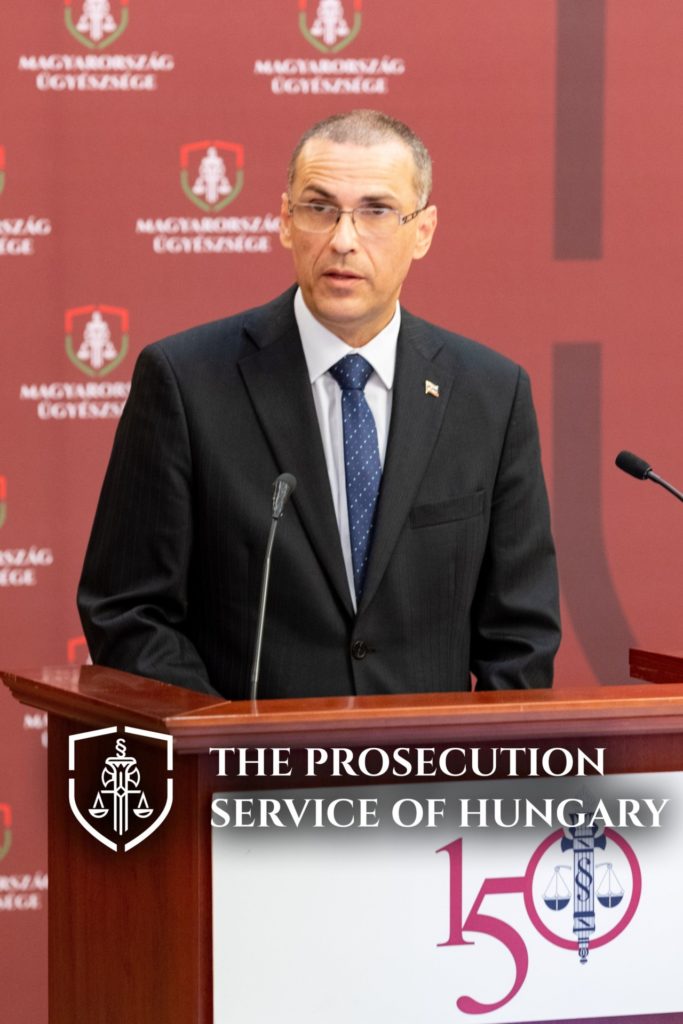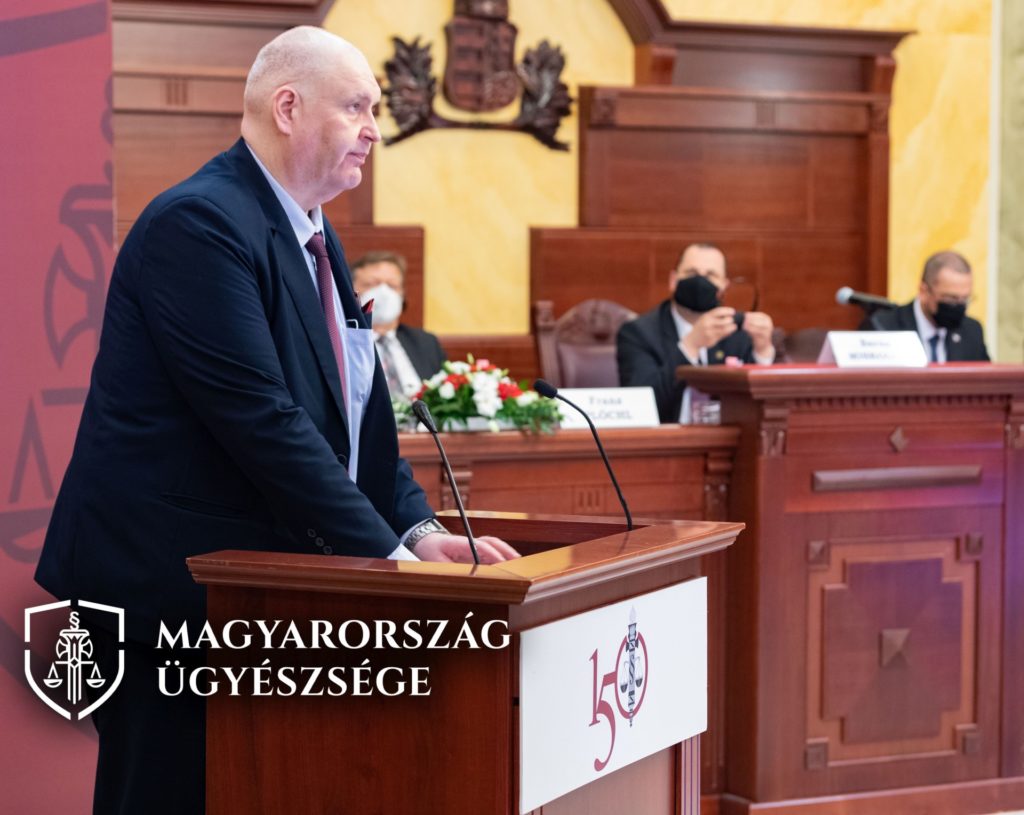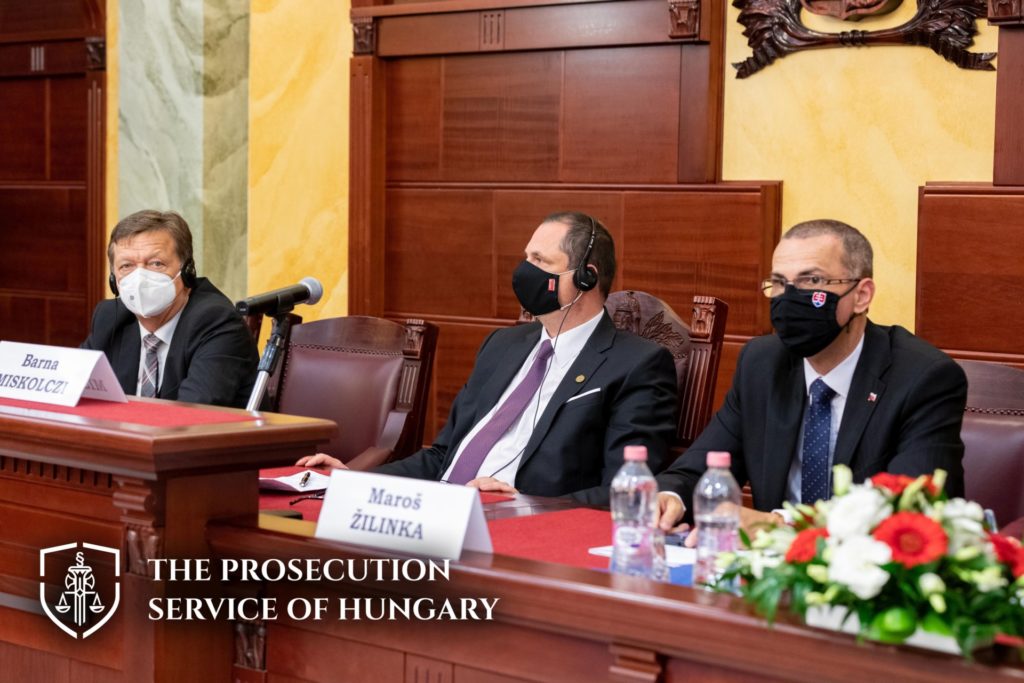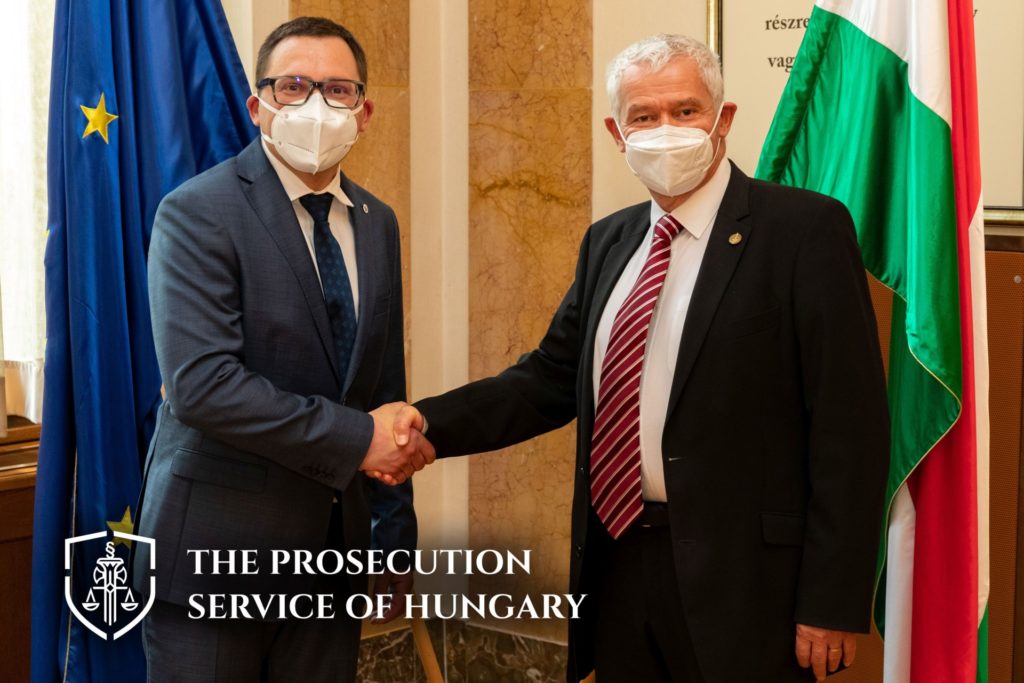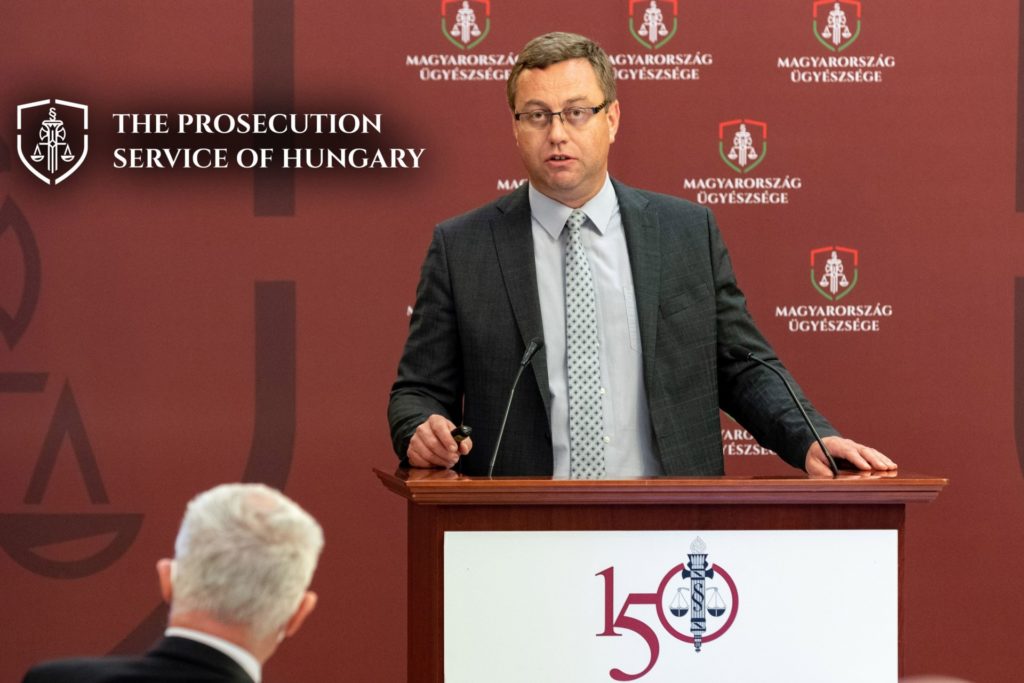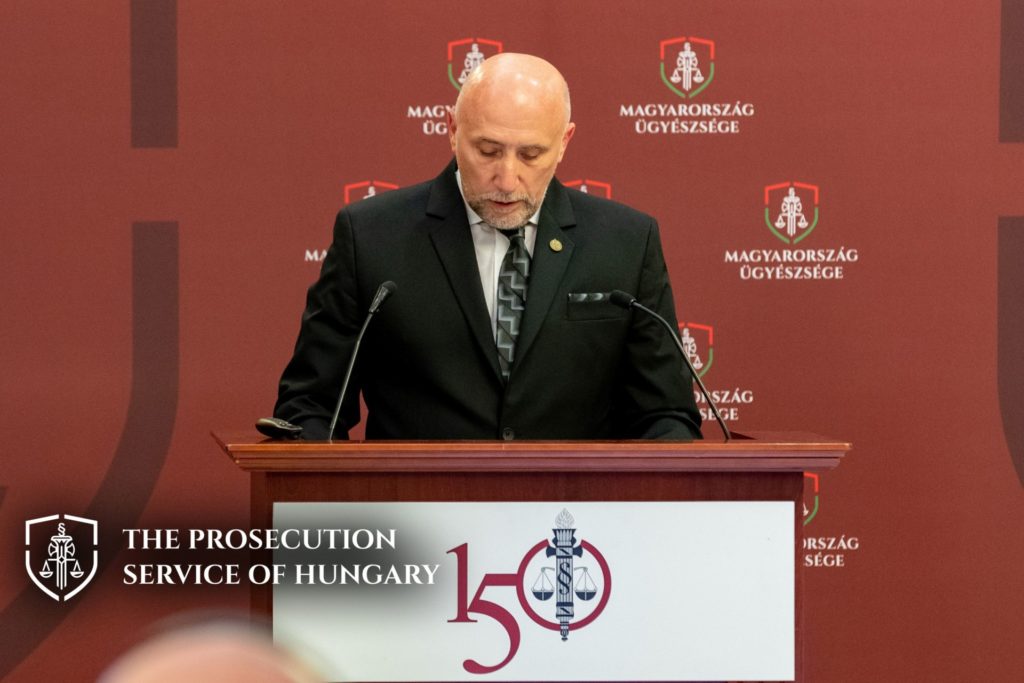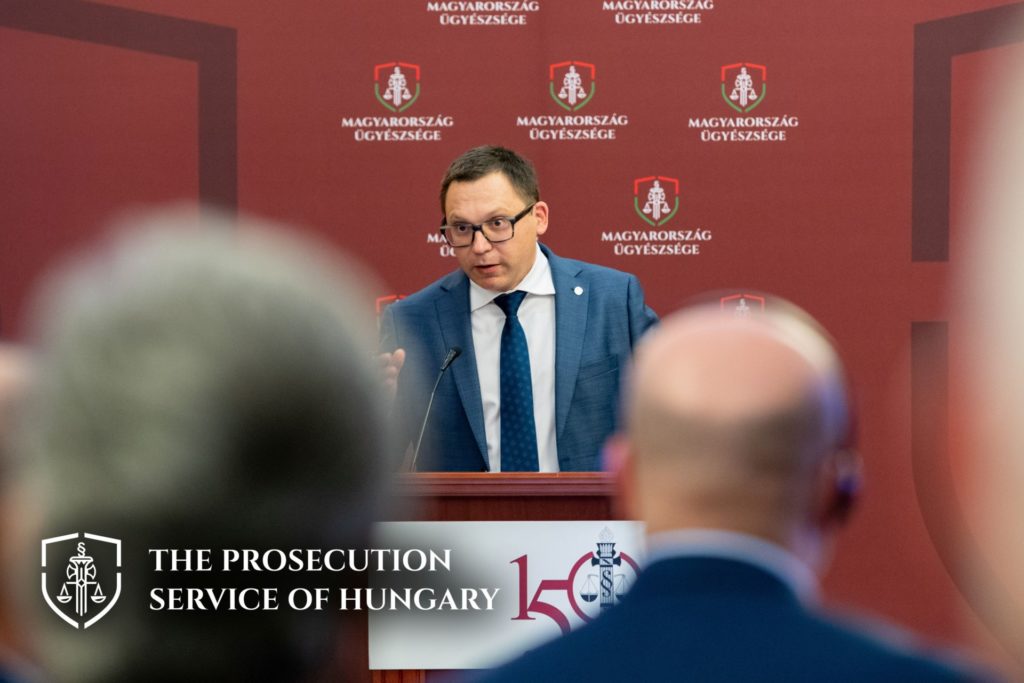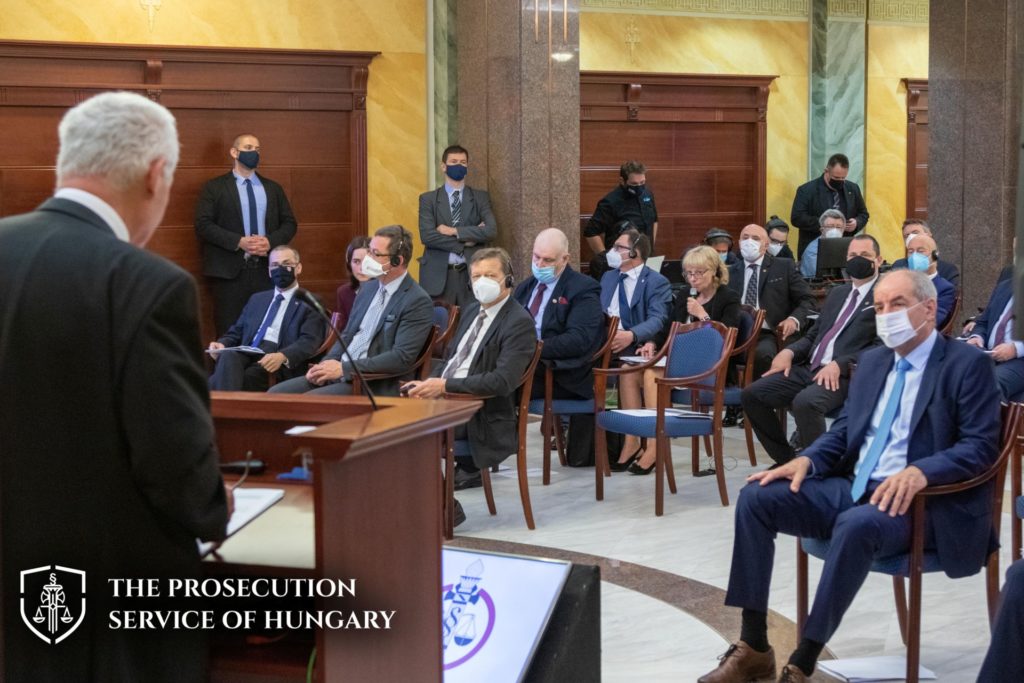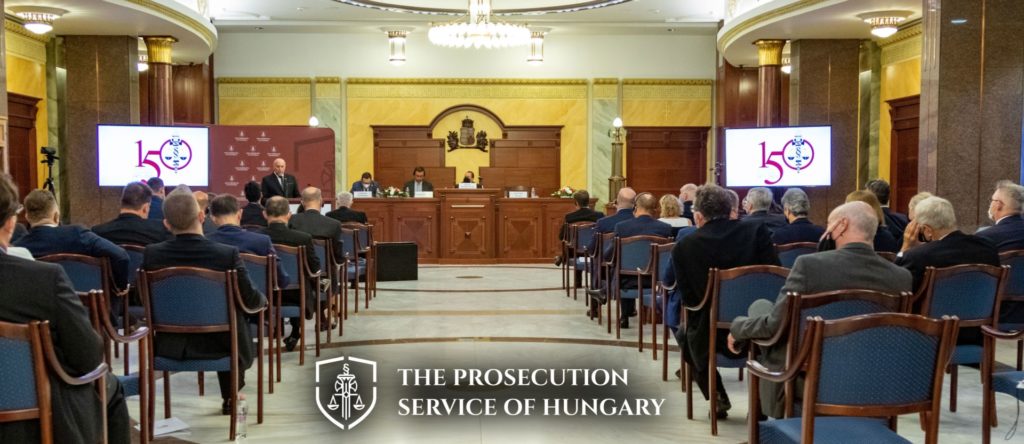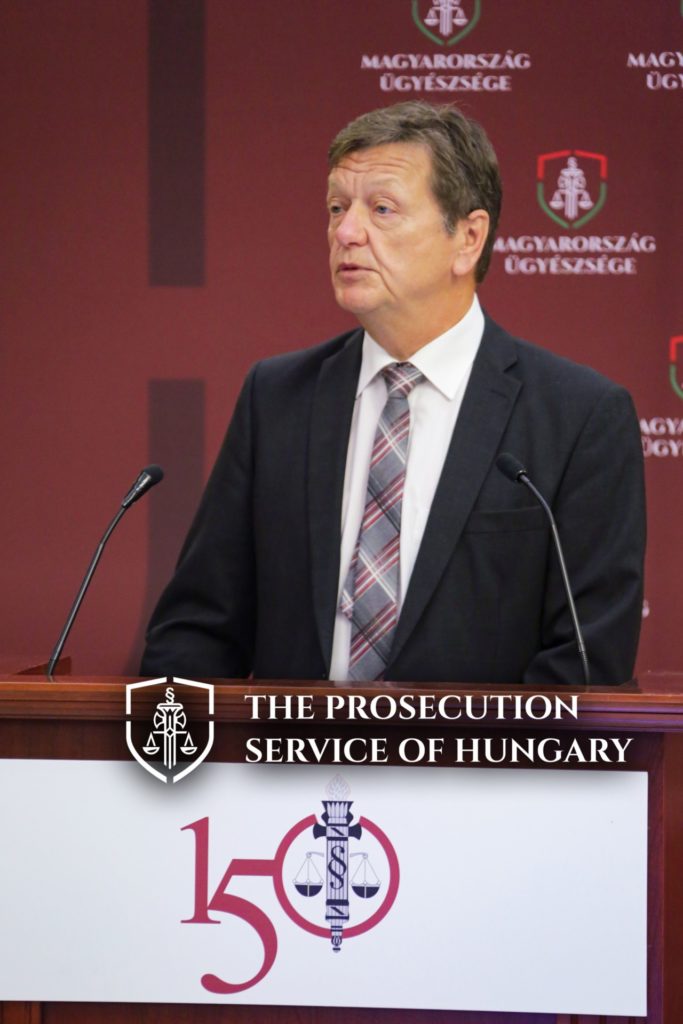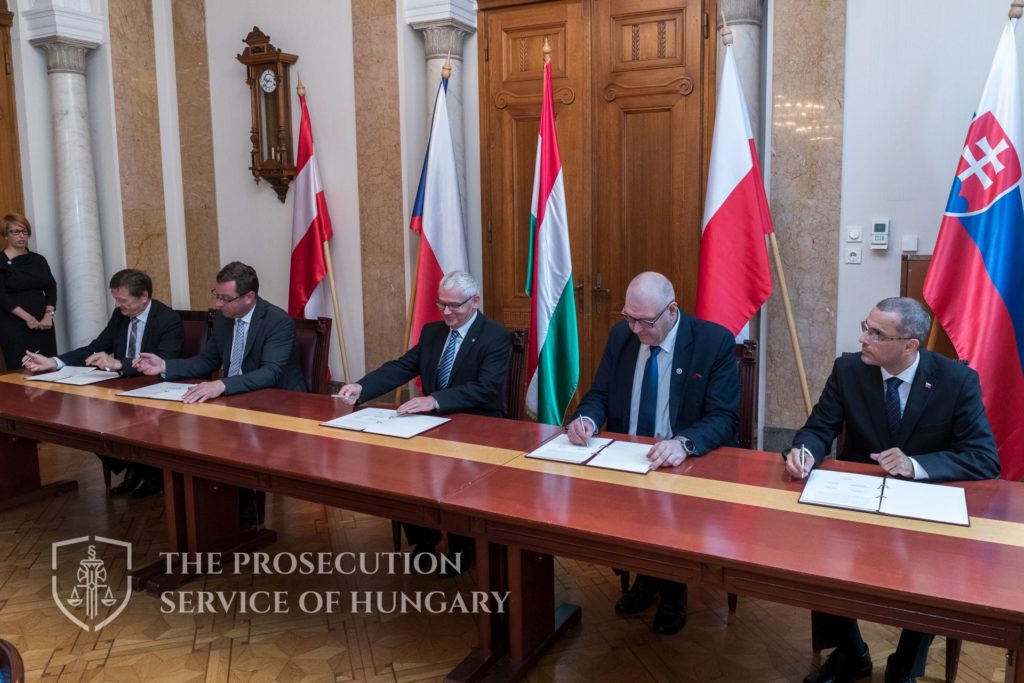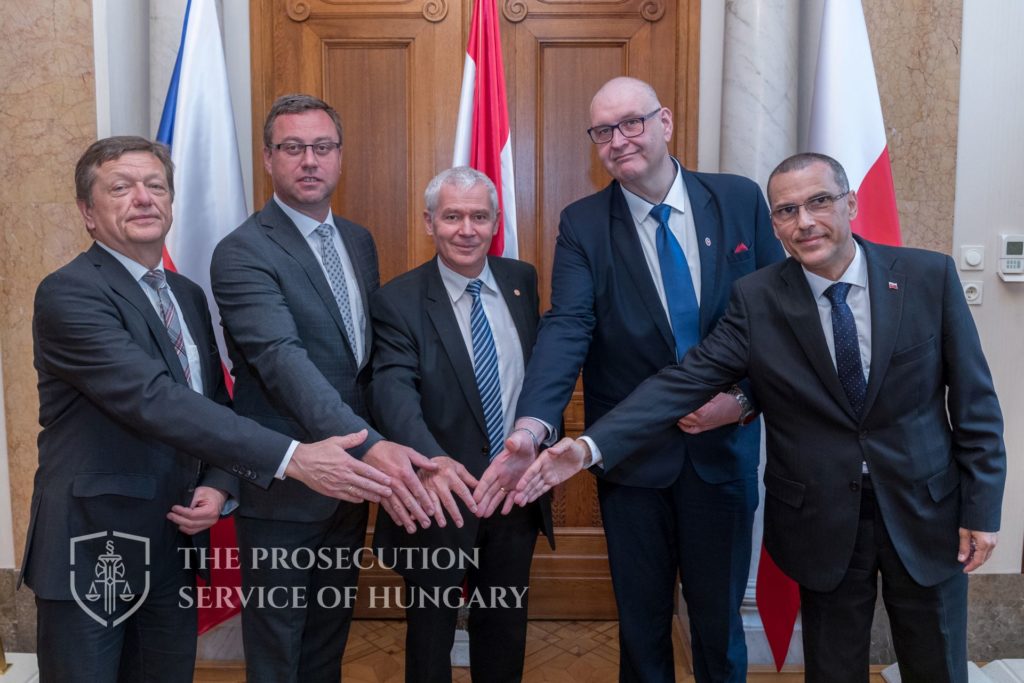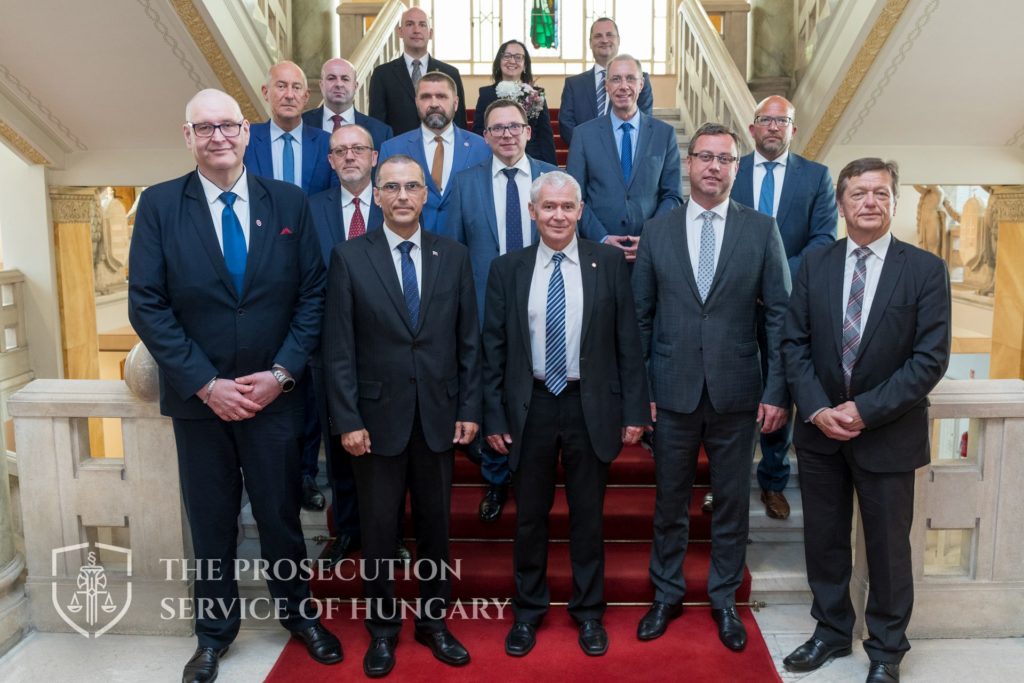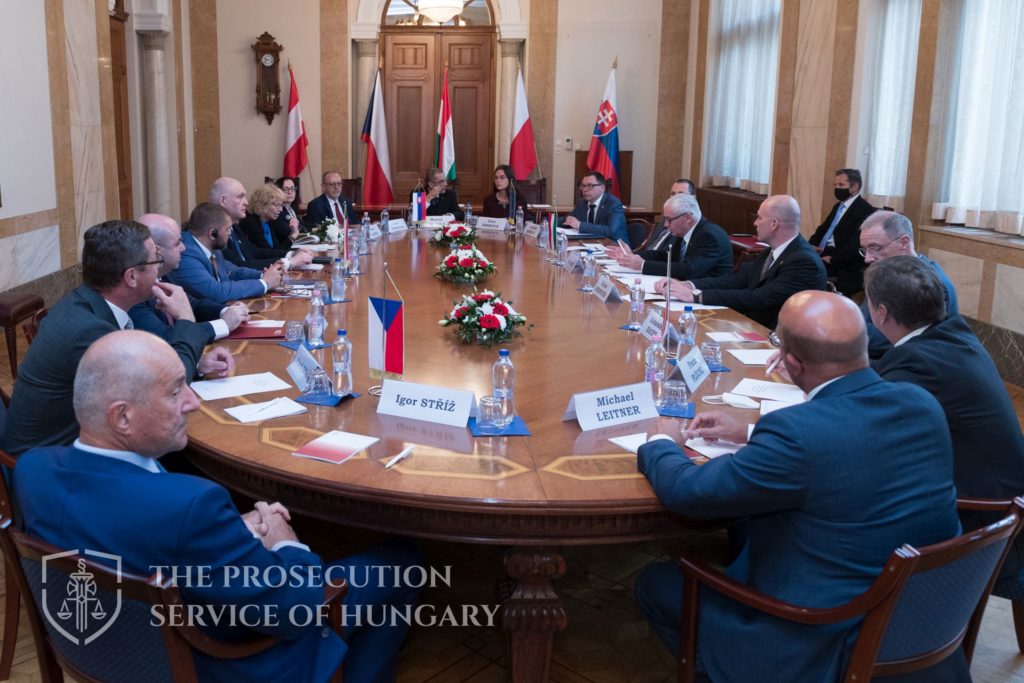The Prosecution Service of Hungary is celebrating its 150th anniversary this year. The Office of the Prosecutor General has organized an international conference in honour of the event, which the Prosecutors General and Deputy Prosecutors General of the Visegrád Four Group, Austria and the President of the Eurojust were invited to. The topic of the conference was the fight against cybercrime and corruption.
At a pre-conference meeting, the Prosecutors General adopted a joint Memorandum reaffirming their close cooperation to take joint actions against forms of cybercrime that became prevalent during the pandemic, such as child pornography, online fraud and attacks against vital infrastructure.
Prosecutor General Péter Polt opened the conference, and he was followed by President of the Republic János Áder, who emphasized that modern justice came into existence in Hungary in 1871, where the triad of prosecution, defense and adjudication was separated. The President of the Republic highlighted that the Fundamental Law of Hungary regulates the constitutional status of the Prosecution Service with detailed rules. In his speech, he stated that today's Prosecution Service plays a significant role in ensuring legality and enforcing rights both inside and outside criminal law.
In his speech opening the conference, Péter Polt gave an overview of the place taken by the Prosecution Service of Hungary within the judiciary from 1871 to the present day. The Prosecutor General of Hungary has driven attention to the fact that the protection of public finances is a primary task, which often requires close international cooperation. The Prosecutor General emphasized that the investigation of official corruption crimes in Hungary is carried out by a separate organizational unit within the Prosecution Service, which is the Central Chief Prosecution Office of Investigation. He also pointed out that the epidemic situation highlighted the role of IT in influencing everyday work.
The Procurator General of Austria, Franz Plöchl presented the Austrian regulation of corruption crimes and he spoke about the changes and results of the recent years. He highlighted the establishment of a special public prosecutor's office dealing with corruption and economic crimes within the unified prosecution service, which has brought a new approach to dealing with such cases.
The Prosecutor General of Slovakia Maroš Žilinka accentuated the usefulness of a separate prosecutor's office and a court to investigate corruption cases. In his presentation, he mentioned the means that greatly facilitate the effective investigation of corruption in Slovakia, such as the possibility of involving a civil person in a covert procedure.
Bogdan Święczkowski Deputy Prosecutor General of Poland explained about the Polish solution that special departments had been set up within the prosecution service to handle corruption and cybercrime cases. By identifying areas that are most affected by corruption, elaborating on the most effective means of action and presenting a few cases, the Prosecutor General of Poland outlined the Polish experiences.
Pavel Zeman Prosecutor General of the Czech Republic reported about a drastic increase in cybercrimes. During the time of the pandemic previously untypical ransomeware appeared such as the ones attacking healthcare providers. Mr. Zeman highlighted the importance of reviewing and considering EU and national regulations regarding the collection and admissibility of electronic data and electronic evidence.
István Lajtár Deputy Prosecutor General of Hungary also emphasized in his presentation that the infinity of the internet requires new criminal procedural tools, as proving crimes mostly relies on digital data, and searching for and recording such data in a way that enables them to be used as admissible evidence pose new challenges.
Ladislav Hamran, President of the Eurojust greeted Hungarian prosecutors on this landmark anniversary, wishing them humbleness, loyalty and much patience to their significant work carried out for the safety of Hungarian citizens. The President of the Eurojust accentuated that the world had changed a lot since 1871 with five billion active internet users sending 300 billion e-mails a day nowadays and with criminals committing their acts in an organized, global way. President Hamran also emphasized that criminal cooperation within the European Union had never been as close as in the last 20 years, and that Hungarian prosecutors had been active and reliable participants of this joint work since 2004.
The conference, which provided an overview of the experiences and practices of the prosecution services of the neighbouring countries, was closed by the summary speech delivered by Prosecutor General Péter Polt.
Péter Polt and Ladislav Hamran also held bilateral negotiations. They formulated a common position that cooperation, which has proven to be successful so far, needs to be continued, because this guarantees for national prosecution services effective joint cooperation and fight against new forms of crime. They also agreed on the need to further strengthen the role of the Eurojust in the framework of European cooperation.
